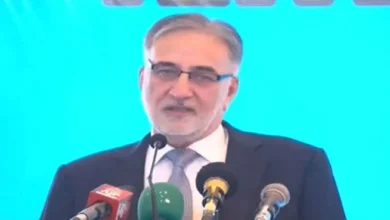Why New 25-Member EAC is Under Fire?
The critics said that the prominent businessmen in the council may put personal interests over national interests

To have a better insight on economic matters, Prime Minister Imran Khan has reconstituted 25-member Economic Advisory Council (EAC) but it has come under fire due to inclusion of businessmen.
The critics said that the prominent businessmen in the council may put personal interests over national interests and at some point, the conflict of interest may arise too.
Working of council
The council will give input on various economic issues including budget recommendations, suggestions on lifting various sectors, improvement of the economy at the macro level, reforms to expedite economic progress, etc.
Unlike the past, the new EAC will be headed by Prime Minister Imran Khan. Previously, it was headed by the finance minister, who will now be vice chairman of the new council.
Members
EAC will constitute 25 members, 13 private and 12 government officials.
The private sector members include Abid Suleri, Arif Habib, Asif Quershi, Ejaz Nabi, Farooq Rahmatullah, Mohammad Ali Tabba, Dr Rashid Amjad, Salman Shah, Shaukat Tarin, Dr Shamshad Akhtar, Sultan Allana, Syed Salim Raza and Zaid Ali Mohammad.
Read Also
PPP Goes on to Foster Relations with Hamza, Shehbaz Sharif
The ministers for energy, planning, development and reform, industries and production, national food security, and economic affairs would also be the members of the EAC.
Why council was formed?
Prime Minister Imran Khan had first formed EAC in 2019 but it was dissolved later.
The officials said that the premier wants to spur economic growth and generate employment opportunities in the last 30 months of government’s tenure.
For this purpose, he intends to seek the help and guidance of eminent economists and financial experts to make it happen.
Why EAC is being criticized?
Examples of such councils are rare in the world and in countries where they existed, the business ethics were so robust that the members couldn’t influence the body.
However, in Pakistan, several lobbies have a history of influencing the decisions of the governments let alone any council and the critics doubt addition of businessmen in EAC would create a conflict of interest.
Critics question addition of businessmen
Shaukat Tareen owns Silk Bank and has vast experience in the banking sector while Sultan Ali Allana is the CEO of HBL bank. It could be said that both individuals may work for the protection of interest of the banking sector.
Muhammad Ali Tabba is the owner of the Lucky Group and will possibly have vested interests in the cement and construction sectors.
Arif Habib owns Arif Habib Limited (AHL) which is a premier brokerage and financial services firm and he may guard his interests too.
The critics said that EAC also includes three former governors of the State Bank of Pakistan (SBP) as well as the incumbent governor.
Former SBP governors include Dr Ishrat Hussain, Dr Shamshad Akhtar and Syed Saleem Raza.
Their insight and experience may not comply with evolving digital economy and its latest trends as they have not been familiar with it.
Imran Khan has pnly retained three members from the private sector who were part of the previous EAC and this decision has been hailed.
They include Abid Suleri, Executive Director of Sustainable Development Policy Institute, Dr ljaz Nabi, Professor of Economics at Lahore University of Management Sciences (LUMS), and Syed Salim Raza, former SBP governor.
According to critics, the current EAC has a a meagre number of policymakers and it was dominated by figures from various sectors such as banking, cement, stock market, energy, and petroleum.
Earlier, when Asad Umar was the finance minister, he had included more experts in the first EAC.
Meanwhile, the government has excluded economic experts who have been widely critical of its policies including Dr Ashfaq Hassan, Saqib Sherani, Dr Hafeez Pasha, and others.




